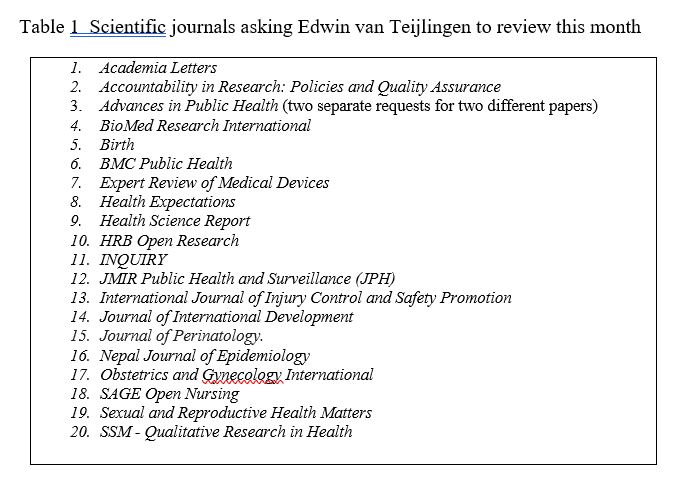As the PM tries to focus on policy to reduce the chat about parties, it may be that the levelling up white paper finally sees the light of day fairly soon, and some big OfS consultations are also expected, so hold on to your hats for the next update! In the meantime, plenty on research priorities.
Parliamentary News
Michelle Donelan gave a ministerial statement on 5 January about reforms to support the government’s skills revolution – ie levelling up by filling skills gaps to boost the economy. Nine more Institutes of Technology were announced (12 already running), T levels announcements were made, and it also covered access to flexible short courses for retraining: More than 20 universities and colleges will offer the courses in subjects where there are skills shortages such as digital, Net Zero, Education, STEM and Healthcare, and offering an alternative to studying a traditional three-year degree. Student finance will be available to students taking the courses, marking the next step in the development of the government’s Lifelong Learning Entitlement which, from 2025, will provide individuals with a loan entitlement to be the equivalent of four years of post-18 education they can use flexibly over their lifetime.
The DfE statement contains more detail.
Education Minister, Nadhim Zahawi, also made a statement. It focussed mainly on schools and Covid issues related to compulsory schooling. However, on international HE students Zahawi stated: We continue to welcome international students to the United Kingdom, and universities stand ready to support any students who are required to quarantine on arrival. Overseas students should not worry, because visa concessions remain in place for international students to allow them to study remotely until 6 April this year.
Research
ARIA: The ARIA Bill has passed through Parliament with limited amendments. Plans for recruitment of the ARIA Chair and Chief Executive are at various stages but it is not known if a preferred candidate has yet been selected. ARIA will have a budget of £800 million over the next four financial years. Wonkhe have a blog.
2022 Ministerial Science Plan: Science Minister George Freeman outlined his core missions and priorities for 2022 on Twitter. Here’s the basics:
- Horizon: push for final sign-off on the UK’s Horizon Europe membership (£80.5bn). As political disputes continue to hold up membership in Brussels the Minister stated he is still working on a “bold Global Britain Plan B” should Horizon membership fall through.
- Research Ecosystem: implementing the Nurse, Grant and Tickell reviews which address the research landscape, UKRI, and research bureaucracy. All three reviews are expected to be published this year.
- ARIA: Establishing the £800m Advanced Research and Invention Agency as the UK’s “science satellite” to ensure the UK “stays on the frontline of exploring new ways of doing new science”. The Bill is now awaiting Royal Assent.
- Science Cabinet: Establishing the new National Science & Technology Council, which Freeman calls the “Science Cabinet”. The Council, which was announced last year, will be chaired by the PM and the chief scientific adviser Patrick Vallance. Freeman also committed to establishing an R&D inter-ministerial group to provide a “joined-up cross-Government” approach to R&D policy.
- Funding: Allocating the £20bn R&D funding promised by 2024-25 at the last spending review to help reach the government’s target of increasing R&D spend to 2.4% of GDP. He also commits to work with the Chancellor, Treasury, and industry to “take forward” the Patient Capital Reviewon supporting business to scale-up to “unlock great UK pension and fund investment” in high-growth companies.
- Regulation: Freeman also commits to support the implementation of the recommendations of the Taskforce on Innovation, Growth and Regulatory Reform– of which he was a member prior to being appointed – which he says will “unlock UK leadership in regulatory innovation for leadership in setting the global standards for fast-emerging new sectors” such as AI and nutraceuticals.
- Levelling Up: The Minister plans to map and focus on the roughly 30 R&D clusters around the UK as the basis for how science and innovation can support the Government’s level-up ambitions, creating “new jobs, opportunities & companies key to sustainable long term growth.” The Levelling Up White Paper is expected to be published in the first half of this year.
- Quantum: Developing a ‘UK Quantum Computing Technology and Industrial Strategy’ to “consolidate the UK’s global leadership in the science of advanced computing into commercial leadership in innovation & industry.”
- Strategies: The Minister committed to implementing the 2021 Life Sciences Visionto “ensure we repeat the successes of our first industrial strategy”, as well as the UK Innovation Strategy to “help create the next high growth sectors”. Plus the UK Space Strategy to develop the £16bn UK space tech sector. Freeman pledges to implement key reforms of the R&D People and Culture Strategy (published by the previous Minister).
- International: Establishing new Global Britain science fellowships, working with global allies and the National Cyber Security Centre to “ensure research security against hostile industrial and sovereign research espionage and IP theft.”
In response, Hetan Shah, writing for Wonkhe calls for the inclusion of social sciences, arts and humanities in achieving the science minister’s priorities for research and development in 2022.
AI: The Centre for Data Ethics and Innovation has published the second edition of its AI Barometer, analysing the most pressing opportunities, risks and challenges associated with AI and data in the UK. And the Defence Science and Technology Laboratory (Dtsl) has published information on the development of a standard approach for AI and autonomy in networked multi-sensory systems in security and defence.
Research Integrity: The Commons Science and Technology Select Committee met on 15 December as part of the Reproducibility and Research Integrity inquiry. Dods have summarised the session here.
Parliamentary questions:
Research Bureaucracy: The Independent Review of Research Bureaucracy has published its interim findings focusing on the role funders play within the research system. You can read a summary of the interim findings or the full interim report. The final report is due in Spring 2022. The report sets out themes and the next steps for the review to consider, rather than recommendations, including:
- How funders might adopt a risk based approach to assurance
- Streamlining reporting including across concordats and the possibility of collective resources
- Simplifying applications and moving admin post-award
- Triaging applications via an expert panel and simplifying assessment criteria
- Maybe controversially – capping the number of applications an institution can submit to a scheme
- Reviewing contracting processes, procurement and change processes
- Digital platforms – portals and interoperability
- Looking at how individual universities manage research and building case studies – the implication being that a lot of the bureaucracy is self-imposed within universities
There will be consultation and the next report will have recommendations.
Admissions
Exams: Wonkhe tell us that the Times reports that Minister for Education, Nadhim Zahawi, has insisted that school exams will go ahead this summer.
BTECs: The Nuffield Foundation & Oxford Brookes University have issued a press release Students with BTECs are successful across a range of university outcomes. The headlines are drawn from this report (the 60 second summary from page 3 is useful). The political context for this release is the DfE’s intention to cease some BTECs and reduce the number of others offered as the country moves towards the T level curriculum. The results provide balance to previous reports that suggest BTEC students achieve lower outcomes that A level entrants. Key points from the press release:
- Students who take A levels are less likely to drop out of university and more likely to graduate with a 2:1 or a first than those with BTECs.
However:
- The majority of graduating BTEC students gain at least a 2:1.
- BTECs provide the route into university for 1 in 4 young student entrants from England, and they are more likely to be from disadvantaged backgrounds than their A level peers.
- Over 80% of students with just BTECs stay at university after their first year and over 60% of graduating BTEC students gain a 2:1 or above.
- However, students who enter with only BTECs are almost twice as likely (11% vs 6%) to drop out before their second year compared to similar A level students. They are also 1.7 times more likely to repeat their first year and around 1.4 times more likely to graduate below a 2:1.
- BTEC entrants with ‘average’ GCSE results had a 25% chance of graduating below a 2:1 compared with an 18% chance for A level entrants with the same GCSE grades and similar other characteristics.
- There are differences in university outcomes between entrants with a combination of A levels and BTECs compared with just A levels, but they are smaller than the differences between those entering with only BTECs and only A levels.
- Analysis of data from one university providing detailed module scores suggests that those with BTECs perform less well on exam-assessed than coursework-assessed modules. Since recent reforms, BTECs must have a proportion of external assessment which may prepare BTEC students better for university exams – the research subjects predated these reforms.
- The type of A levels (e.g. traditional) and whether an A level in the degree subject was held had an impact on degree outcome read more in the report and press release on the above links.
Dr Dilnot (report author) said: Reform of level three qualifications is high on the Government’s agenda, with the publication of a policy document in July 2021 on the defunding of large BTECs in the context of introducing a more clearly two pronged approach to further study and training, with A levels on the one hand and T-levels on the other. We welcome the planned postponement of the removal of funding for most BTECS and would encourage further consideration of their future. It’s very important to note that although there are differences between outcomes for BTEC and A level students, the overwhelming majority of students entering with BTECs or combinations do not drop out, and the majority of those graduating do so with at least a 2:1.
Dr Wyness (report author) commented: It is clearly important to address the differences in university outcomes between those with A levels and BTECs…But it should be remembered that, without the availability of BTECs, many disadvantaged students might not have attended university at all.
Access & Participation
First in Family – part 1: The Nuffield Foundation & UCL published First in family: higher education choices and labour market outcomes highlighting that women who are the first in their family to graduate from university earn 7% less in their mid-20s compared to female graduates whose parents attended university. They are also less likely to attend an elite institution, 4% more likely to drop out than those with graduate parents and female first in family students often face multiple disadvantages. The report is set against the recent political backdrop whereby the Government is pushing universities to reduce dropout rates and introduce new targets which support disadvantaged students through university and into highly paid, skilled jobs.
On the female multiple disadvantage the report finds the first in family female (FiFF) pay gap is impacted by:
- Unlike first generation male graduates, FiFF graduates have, on average, lower pre-university educational attainment than their female peers with at least one graduate parent.
- FiFF are less likely to attend a more selective university;
- FiFF tend to work in smaller firms, and in jobs that don’t require a degree;
- FiFF are more likely to become mothers by the age of 25;
Moving forward lead author, Dr Morag Henderson, said: Universities should target first generation students in their recruitment and ensure that there are systems to support them while at university. We recommend that universities target some of their successful mentoring schemes specifically to first in family students to reduce the risk of dropout among this group…And while it is encouraging to hear the government suggesting that university is ‘as much about getting on as it is about getting in’, their new plans to reduce dropout rates and set targets for entry into well-paid jobs among disadvantaged graduates should consider those who are first in their family to attend university.
Other recommendations within the report are:
- Use Contextual Admissions to make offers to students which consider socioeconomic status, individual characteristics and type of school attended. It remains all the more important that universities are able to identify students who have a high potential to succeed, irrespective of their background.
- Given that first in family status is an important indicator that could be key in efforts to widen participation at universities: we recommend that University College Admissions Service (UCAS) increase its efforts to improve measurement and validity of the first in family measure.
- We recommend that early intervention among the potential first in family group is important, where there should be more coordination and resource to raise attainment [and non-cognitive skills] among this group throughout schooling to ensure that students are able to pursue higher education should they choose to.
- We recommend that efforts are made by graduate employers to support the Widening Participation agenda beyond higher education. By targeting these groups in their graduate training programmes and recording first in family status data in applications through to recruitment, they can ensure a diverse workforce.
First in Family – part 2: Meanwhile HEPI published: New report finds ‘first-in-family’ status flawed as a way of helping disadvantaged students. It states with over two-thirds of students able to be classified as first in family it cannot be a useful indicator for widening participation activities, particularly because it is self-declared and unverifiable. The report argues only a tighter first in family indicator should be considered and only for lower stakes widening participation activities. For higher stakes activities, such as contextual offers at highly selective universities, it should be used only as part of a basket of measures. Overall the paper agrees with the data mentioned in the Nuffield study above and the short version is the authors recommend first in family be used in combination with other measures to target support (such as free school meals). While this HEPI report and the above Nuffield study seem to disagree ultimately they both recommend a granular approach acknowledging multiple deprivations and organisations working together to enhance the validity of the looser measures. So the same messages that have been around for several years.
Drilling down further the HEPI paper also recommends:
- delivering outreach for the parents of groups that are under-represented in higher education, and:
- providing student mentors for first-year undergraduates to help them build networks.
Nick Hillman, Director of the Higher Education Policy Institute, said: This research has changed my thinking on “first-in-family” students. It is a description of majority status that has been masquerading as a description of minority status.
Harriet Coombs, the author of the report, stated: The first-in-family problem is, at root, a fair access one rather than a widening participation one…the bigger problem is not getting more first-in-family students into higher education, but rather getting more first-in-family students into highly selective institutions. Further to this, highly selective universities now need to ensure they retain first-generation students as well as just recruit them.
Student transfers: Parliamentary Question on the background of students changing HE provider; (context: the proportion of higher education students who transfer between higher education institutions in any given year; and the assessment of the socio-economic backgrounds of those students). Edited answer:
- 9% of students who entered the first year of a full-time first degree in England in the 2018/19 academic year had transferred to a different provider one year after entry.
- The statistics are disaggregated by student characteristics, including two measures of disadvantage. These show that:
- 4% of students from Participation of Local Areas (POLAR4) [1] quintile 1 (lowest higher education participation) backgrounds had transferred to a different provider one year after entry, compared to 3.0% for those from quintile 5 (highest higher education participation);
- 8% of students from Index of Multiple Deprivation (IMD)[2] quintile 1 (most deprived) backgrounds had transferred to a different provider one year after entry, compared to 2.5% for those from quintile 5 (least deprived).
Rebooting Widening Access: Another offering from HEPI written by NEON Director Professor Graeme Atherton Giving widening access a real reboot argues that if the government really wants to move the widening access agenda forward then it needs to be more radical than was suggested by the Minister for Higher Education in November last year. A ‘real’ reboot of widening access to higher education would:
- Revise graduate outcomes targets to make them both broader to encompass both other measures of success alongside income and also local/regional as well as institutional.
- Move away from the POLAR measure as a tool to orientate the work of outreach and access work.
- Initiate collaboration across the student lifecycle.
- Make the Office for Students more outward facing.
- Link outreach to careers work through a change in the admissions system.
Old Vs New Advice: Finally Wonkhe report on The Centre for Global Higher Education’s working paper written by former OfS director of fair access and participation Chris Millward, reflecting on his experience working in higher education access. On Wonk Corner, Jim Dickinson notes sections that shed light on Millward’s views on universities being asked to raise attainment in schools – which he approached with “caution” given questions over how “appropriate” such advice would be for the regulator of higher education.
Degree Apprenticeships
The Institute for Apprenticeships and Technical Education has reported the responses to their consultation on reforming degree apprenticeships. You can read a summary here. There was support for the planned changes to how degrees are included in apprenticeships. This included further integration of on-the-job and off-the-job training, aligning the end point assessment with the final assessment of the degree, and the alignment of all degrees within apprenticeships with the occupational standards (the employer-defined knowledge, skills and behaviours that must be learned to prove occupational competency) to avoid existing degrees being re-badged as apprenticeships.
Separately this parliamentary question has warm words from the Minister on degree apprenticeships.
International
The Department for Education has updated the Covid-19 guidance for international students before they travel to the UK.
Parliamentary Question: International students are permitted to start a course from overseas through distance learning without a visa.
Wellbeing
Wonkhe report on a National piece which highlights new research from Glasgow University on the wellbeing of Postgraduate Researchers. The research, which surveyed PGRs across 48 UK institutions, found that “almost a quarter of respondents (23 per cent) had considered suicide or self-harm in the past two weeks”.
Wonkhe also have a wellbeing blog – In difficult times communications can enhance or erode student wellbeing. Sunday Blake talks to student welfare officers to learn the lessons of the pandemic for connecting with students.
Sexual Violence
UCU published a new report on eradicating sexual violence in tertiary education. The report calls on employers to do more to tackle sexual violence. UCU found in the last 5 years:
- 12% of women and 5% of men had directly experienced workplace sexual violence
- 52% of those who directly experienced sexual violence did not disclose or report it to their employer
- 70% of those who directly experienced sexual violence experienced it as an ongoing pattern of behaviour rather than a one-off incident
- Staff on non-permanent contracts were 1.3 times as likely to experience direct sexual violence than those in permanent roles
- Staff on insecure contracts, those with disabilities, those who are trans & non binary, those in racialised minorities and those with a sexual orientation other than heterosexual are all at significantly greater risk of sexual violence
PQs
Other news
Free speech:
- Wonkhe report that Education secretary Nadhim Zahawi has saidon Twitter that he will consider supporting a new amendment to the Higher Education (Freedom of Speech) Bill, proposed by Jesse Norman, that would require universities to declare all overseas contributions of more than £50,000 to the Office for Students (OfS). The amendment, also supported by education select committee chair Robert Halfon, would see OfS publishing a searchable database of such donations annually and would require institutions to report all applicable contributions made since April 2013. The bill is currently awaiting a date for report stage debate in the House of Commons.
- A new short Wonkhe piece on students’ self-censoring their viewpoints and commenting on a You Gov survey which polarises opinion between prioritising free speech or preventing hate speech.
- PQ on Guidance to accompany the Free Speech Bill for HE sector and a consultation will be published in due course (0.24% events cancelled on campus – not necessarily due to free speech issues).
National Security (& research):
- Business Secretary Kwasi Kwarteng has made an announcement on new laws to strengthen national security coming into effect: The National Security and Investment Act came into force this week, granting the Government powers to scrutinise and intervene in certain acquisitions made by anyone, including businesses and investors, that could harm the UK’s national security, better reflecting the threats we face today.
- The government now has the power to block deals ranging from research projects for foreign corporations and funding of PhDs to the establishment of joint research centres and the purchase of spinout companies
- The government will also be able to impose certain conditions on an acquisition or, if necessary, unwind or block it – although it is expected this will happen rarely and the vast majority of deals will require no intervention and be able to proceed without delay, in the knowledge that the government will not revisit a transaction once cleared unless false or misleading information was provided.
- The new regime is more transparent about the types of deals the government could examine, and requires businesses and investors to notify the government of certain acquisitions across 17 sensitive areas of the economy, including Artificial Intelligence and Civil Nuclear.
- The Department for Business, Energy and Industrial Strategy has published guidance to help higher education institutions, other research organisations and investors in this area to understand the scope of the NSI Act, which came into force on 4 January 2022.
Appointments:
- Department for Environment, Food and Rural Affairs – Environment Agency – Sarah Mukherjee and Mark Suthern appointed as Non-executive Directors to the Board from 10 January to 9 January 2026; Natural England – Tony Juniper CBE reappointed as Chair for a second term from 23 April to 22 April 2025.
- Department for Digital, Culture, Media and Sport: John Edwards appointed as Information Commissioner for five years from 3 January; BBC – Muriel Gray appointed to the Board as Scotland Nation Member from 3 January to 2 January 2026; Charity Commission – Ian Karet’s term as Interim Chair extended from 27 December 2021 to 26 June 2022, whilst the appointment process for a permanent Chair is conducted. Household name Laura Kuenssberg is to stand down as BBC Political Editor after seven years in the job, she will remain in the post until Easter; Deborah Turness appointed as CEO, BBC News and Current Affairs.
- Government Equalities Office: Equality and Human Rights Commission – Akua Reindorf appointed as a Commissioner and Board Member.
- Department of Health and Social Care: NHS Business Services Authority – Silla Maizey’s re-appointment as Chair extended from 1 January to 31 March; Human Fertilisation and Embryology Authority – Margaret Gilmore’s and Ruth Wilde’s re-appointment as Non-executive Members extended for three months from 1 January; Anne Lampe’s re-appointment as Non-executive Member extended for three months from 1 February
Interest Groups:
- Beaver Trust – Sandra King appointed as Chief Executive.
- The Clink Charity – Yvonne Thomas appointed as Chief Executive.
- Crisis – Matt Downie MBE appointed as Chief Executive.
Student Engagement Tech: Wonkhe report that Jisc and Emerge Education have released a new report on how technology can be used to improve student engagement. The report presents several case studies of technology being used to enhance engagement across the sector and suggests that both digital strategies and working with students should be adopted by institutions. On Wonk Corner Will Awad has some thoughts on what’s next for technological advancements in the sector.
Doctoral recruits: Wonkhe inform that The Natural Environment Research Council has published best practice principles for recruiting doctoral candidates. The aim of the principles are to assist Centres for Doctoral Training (CDTs) and Doctoral Training Partnerships (DTPs) to improve their diversity, equality and inclusion. The CDTs and DTPs need to be implementing the principles from October 2022 if they have not already begun.
HE reputation: Research Professional – University reputations ‘at risk’ from Office for Students’ focus on compliance. England’s regulator risks accidentally damaging higher education’s reputation by not focusing on positive examples, Universities UK has warned.
Subscribe!
To subscribe to the weekly policy update simply email policy@bournemouth.ac.uk. A BU email address is required to subscribe.
External readers: Thank you to our external readers who enjoy our policy updates. Not all our content is accessible to external readers, but you can continue to read our updates which omit the restricted content on the policy pages of the BU Research Blog – here’s the link.
Did you know? You can catch up on previous versions of the policy update on BU’s intranet pages here. Some links require access to a BU account- BU staff not able to click through to an external link should contact eresourceshelp@bournemouth.ac.uk for further assistance.
JANE FORSTER | SARAH CARTER
VC’s Policy Advisor Policy & Public Affairs Officer
Follow: @PolicyBU on Twitter | policy@bournemouth.ac.uk
 All research undertaken by BU staff and students is subject to appropriate ethical reflection, leading to a formal ethics review as appropriate.
All research undertaken by BU staff and students is subject to appropriate ethical reflection, leading to a formal ethics review as appropriate. Today’s spotlight is on Research Misconduct.
Today’s spotlight is on Research Misconduct. All clinical research, whether a simple interview study or a clinical trial of a new medicine, must adhere to a set of standards called Good Clinical Practice, or in other words, ‘GCP’.
All clinical research, whether a simple interview study or a clinical trial of a new medicine, must adhere to a set of standards called Good Clinical Practice, or in other words, ‘GCP’.













 Read and sign up to BU’s Policy Influence Digest
Read and sign up to BU’s Policy Influence Digest Upcoming opportunities for PGRs – collaborate externally
Upcoming opportunities for PGRs – collaborate externally BU involved in new MRF dissemination grant
BU involved in new MRF dissemination grant New COVID-19 publication
New COVID-19 publication MSCA Postdoctoral Fellowships 2024
MSCA Postdoctoral Fellowships 2024 Horizon Europe News – December 2023
Horizon Europe News – December 2023